Emily Abendroth is a poet, teacher, and anti-prison activist. Much of her creative work investigates state regimes of power and force, as well as strategies of resistance to the same. Her poetry book, ]Exclosures[, was just released from Ahsahta Press this past May. Her works are often published in limited edition, handcrafted chapbooks by small and micropresses such as Belladonna (New York), Little Red Leaves (Texas), Albion Press (Philadelphia), TapRoot (San Francisco) and Zumbar Press (San Francisco). She is an active organizer with Decarcerate PA (a grassroots campaign working to end mass incarceration in Pennsylvania) and is co-founder of Address This!, an education and empowerment project that provides innovative, social justice correspondence courses to individuals incarcerated in Pennsylvania. She was a 2013 Pew Fellow in Poetry and has been awarded residencies at the Millay Colony, the Headlands Center for the Arts, and the MacDowell Colony.
1 - How did your first book or chapbook change your life? How does your most recent work compare to your previous? How does it feel different?
]Exclosures[, which just came out on Ahsahta Press in May of 2014, is my first full-length collection. I’m not sure if I would attest that it changed my life – or better to say – I’m not sure if it changed it any more than the way each thing we do or each set of choices we make informs and shifts the shape of what comes next. However, I would say that because that book consists of a single serial work that keeps revisiting certain questions and concerns across its duration, with the newly accumulated weight and resonance of the preceding pieces, it taught me a lot about the possibilities for an extended form of its kind to build layers of complication and density in unique ways. This is something that I’m carrying over and hoping to continue exploring and exploiting, albeit with a very different structural approach and set of contents, in the piece that I’m currently working on now.
2 - How did you come to poetry first, as opposed to, say, fiction or non-fiction?
I think I came to poetry specifically out of a desire for a certain kind of close attention to the individual word in all of its tactile, in addition to connotative, qualities. I appreciated the weight of the choices and possibilities as they were situated at the smallest phrasal and sonic levels. Later, in other periods since then, I have likewise found myself wanting to shift that some, to allow for different, more extended arcs of thinking and accretion and growth – but that initial and ongoing work around local phrasal concerns was (and still is) very important for me.
3 - How long does it take to start any particular writing project? Does your writing initially come quickly, or is it a slow process? Do first drafts appear looking close to their final shape, or does your work come out of copious notes?
It’s a slow process and on the formal level my pieces tend to change shape a great deal along the way, even if the driving questions that motivated it initially all still hover there. I tend to work on longer or serial pieces, and they often involve simultaneous research work, whose discoveries enliven, redirect, and transform the material content of the pieces. I’ve always really loved the following observation that Michel Foucault made in an interview with the Italian Marxist Duccio Trombadori in 1978: If I had to write a book to communicate what I have already thought, I'd never have the courage to begin it. I write precisely because I don't know yet what to think about a subject that attracts my interest. In so doing, the book transforms me, changes what I think. As a consequence, each new work profoundly changes the terms of thinking which I had reached with the previous work.”
4 - Where does a poem usually begin for you? Are you an author of short pieces that end up combining into a larger project, or are you working on a "book" from the very beginning?
I definitely don’t work on a “book” from the very beginning, but it has also been many years since I’ve written a one-page stand alone poem. I tend to think of poetry as a place where I try to puzzle, muss up, divinate, muscle, and/or bungle my way through a set of doubts, concerns, interests, and perplexities whose layers seem to me to require precisely that and more. To pull apart an intellectual or political knot as it were. And I’ve never been one who can manage to do that to a satisfying degree (I’m not speaking aesthetically here, so much as conceptually), in a single nugget of condensation. There are many poets I admire who can, who find their strength of force in exactly that act, but I’m just not one of them.
5 - Are public readings part of or counter to your creative process? Are you the sort of writer who enjoys doing readings?
I think because there’s so much sound work that happens in my pieces – and because there’s so much labor that goes into making sure they are a chewy mouthful with an aural complexity that is doing related, but distinct, work to the conceptual orientations – I do enjoy reading the results out loud. And so much of my secondary editing processes specifically involve reading them aloud over and over (whether alone in my bedroom or on a bench outdoors somewhere) as a kind of test drive of their construction, that it does feel appropriate to at some point be doing that same process of oral sharing before a living public of some kind. At that point, I also usually and happily feel just free or unselfconscious enough (although that wasn’t always the case) to simply be “the vessel” of those pieces, but with a kind of intimacy with them that can handle their many intentional tongue-twisters and consonant gluts.
6 - Do you have any theoretical concerns behind your writing? What kinds of questions are you trying to answer with your work? What do you even think the current questions are?
The collection of serial poems that make up ]Exclosures[ was driven by a set of concerns and explorations that have dominated my poetic imagination (as well as my community/political activism) over the last half dozen years or more. Through this writing, I was attempting to push myself to sound out the catastrophic and debilitating reverberations of living in a society that has effectively criminalized our most basic characteristics of livelihood and requirements for existence (our youth, our old age, our poverty, our needs for housing or a doctor’s appointment, our hunger) and fed them back to us as “dangerous” behavior and/or “unsustainable/unassuageable” demands. This is a set of conditions that has thus created what philosopher Judith Butler refers to as “those ‘unlivable’ or ‘uninhabitable’ zones of social life which are nevertheless densely populated.”
Although the focal points and curiosities/mysteries that are driving the piece I’m currently working on now are different, there are still these shared territories of inquiry and high stakes investment: revolving around questions about power, representation, self-determination, mutual aid, survivability, etc.
7 – What do you see the current role of the writer being in larger culture? Does s/he even have one? What do you think the role of the writer should be?
I’m not sure that question is a vital one for me as posed. I’m committed to our obligations to one another as people, guided by the principles of shared dignity and basic human rights (in keeping with and not erasing or trumping the rights of the larger natural environments we inhabit) – a commitment which I recognize that very few of us, human or otherwise, actually have the luxury to live under. Given that enormous discrepancy which is so deeply lodged in the current U.S. landscape of racialized capitalism, this commitment therefore obliges me to a variety of acts in my life as a human being, more so than as a poet. That my poetry reflects what I am wrestling with elsewhere (and what I maybe also have less luxury to probe as deeply or unhesitatingly elsewhere, given the constant need to quickly respond to conditions of acute emergency), makes sense to me. But I’m more concerned about the ways in which I and others “show up” and “can be counted on” as individuals in all our collaborations and relationships with others, rather than strictly in the artistic or poetic ones. Personally, I’m drawn to poetry because of my love of language and its capacities and malleability and evocational power, but I don’t place the writer or poet in any more critical or heroicized a role than other artists of any kind. Rather, given the relatively tiny cultural niche in which poetry tends to operate in the U.S., if anything I tend to understand its role as occurring within a pretty localized sphere – although I’m careful not to equate that localness with diminutiveness or lack of importance. Further, I don’t place artists in any more elevated a position in their grappling with the world than others who have found alternate mechanisms and means to do so. I think art is important and can offer a great deal by way of perspective and experience, but I don’t think it’s a pinnacle or exclusive terrain in that regard.
8 - Do you find the process of working with an outside editor difficult or essential (or both)?
My impression is that the editing process for poetry is, in the main, far less intensive on the line-by-line or page-to-page level than it is for fiction or criticism. There tends to be an effort to honor the writer’s intentions and choices – while at the same time offering suggestions – that I really appreciate. I’m a big fan of directed feedback, where the artist has some agency in framing what aesthetic decisions are up for negotiation or change, and where they’re seeking input, etc. And I’ve had the privilege to work with extremely generous, insightful, dedicated editors at every stage to date.
Perhaps because there’s little to no money involved in the publication of poetry, at least in my experience, all parties tend to be engaged because of their genuine investments in the experiment or investigation at hand, and thus to offer suggestions that they think will push that specific investigation forward, as opposed to being driven by questions of marketability or the like. This can be rough for poets in terms of their day-to-day financial solvency as humans, but I think it’s a gift in many other ways.
9 - What is the best piece of advice you've heard (not necessarily given to you directly)?
Avery Gordon: “Abolition recognizes that transformative time doesn’t always stop the world, as if in an absolute break between now and then, but is a daily part of it, a way of being in the ongoing work of emancipation, a work which inevitably must take place while you’re still enslaved, imprisoned, indebted, occupied, walled in, commodified, etc.”
10 - How easy has it been for you to move between genres (poetry to essay to multi-media to visual collaboration)? What do you see as the appeal?
It hasn’t been especially easy for me, but it has been important. The piece I’m working on now, and that is very much still in-progress, is currently entitled “MICROFICHE / MICROFILCH / MICROMANAGE / MICROFEIGN: A Series of Reflections on the Experiences of Surveillance & Resistance.” This piece has been particularly exciting to work on given that presentationally it can be introduced to individual spaces and before distinct audiences in a range of different formats. To date, I have presented working portions of its contents (in their still-emerging form) as: a slide lecture, a performative talk, a geography lesson, a single component of a public skills-share workshop on practicing online security, and a poetic essay. This new (to me) experimentation with greater multi-media possibilities happily expands - beyond traditional poetry audiences - the range of locations and events in which this work can be seen, thus enlarging the scope of who it is in conversation with and how.
11 - What kind of writing routine do you tend to keep, or do you even have one? How does a typical day (for you) begin?
I’ve been doing project-based, freelance style work for at least a dozen years now – wherein my life on any given week consists of a diverse patchwork of paid teaching, multiple meetings in relation to community organizing work, unpaid (but gratifying and empowering) labor on a radical education project for PA prisoners, and creative work. How many hours are devoted to any one of those arenas each week varies tremendously dependent on diverse factors of urgency, finances, inspiration, and outside demands. Therefore, I rarely have a “typical” week. And I do go through streaks where I simply don’t and/or can’t prioritize my writing practice at all. And I make use of intensive spats like residencies (official or self-made) to try to achieve greater focus in the arena of the imaginative for a period.
12 - When your writing gets stalled, where do you turn or return for (for lack of a better word) inspiration?
My physical body, if possible. As much as I value and wish to make space for writing, I often spend way too much time at desks or in front of screens. It can be wild how often physically moving somewhere (anywhere!) can help to literally move my thinking forward when it’s clogged up at an impasse on the page. I also turn all the time to other writing – although frequently, and especially when I’m really stuck, not to writing in my own genre. Sometimes a notably different kind of use and approach to language can help me find a new and unexpected way in. I also like to go on occasional obsessive learning forays into arenas I know nothing about and that resemble my daily life as little as possible – in order to try to deeply jostle my own thinking and approach. Like what can bacterial growth or moth migrations or so-called hysterical paralysis or the warning systems of prairie dog colonies reveal to us, by way of a wholly different model, regarding how we might multiply or travel or overcome mental hurdles or act in solidarity with one another.
13 - What fragrance reminds you of home?
Until my brother and I moved out of the house, my family heated our home entirely via the emanations of a single downstairs wood stove. It’s pretty easy for me to this day to conjure the dry heat, crackle, smell, and smoke of that bulky piece of cast iron machinery in the living room, and how one would try to cut against and moisten the parch it produced by placing a big pot of water atop with spruce branches inside to be evaporated into the air. That wet humidifying scent of spruce or cedar coupled with woodsmoke would, I guess, be my vote.
14 - David W. McFadden once said that books come from books, but are there any other forms that influence your work, whether nature, music, science or visual art?
Without question. I would say there’s plenty!! I look at or listen to or touch other art (that is not writing) whenever I can; it’s actually incredibly helpful to view work that in some way shares themes or questions or orientations with your own, but that has taken up a completely different set of means and materials and tools to approach them. And as I mentioned briefly above, moving outside my own species has on occasion been not only compelling, but critical. Looking to animal behaviors/culture or complex symbiotic ecosystems or other natural processes at moments when humans seem like such a disheartening model, can assist in bringing to the foreground choices that seemed completely illegible or immobile previously.
15 - What other writers or writings are important for your work, or simply your life outside of your work?
James Baldwin, Herman Melville, Gertrude Stein. Queer theorists like Judith Butler and Eve Sedgwick. The kinds of brave, muddy and mutually generous conversations on race, gender and justice that Audre Lorde and Adrienne Rich were able to have together across decades. The new feminist journal LIES out of Oakland – very helpful. Prison abolitionists like Angela Davis and Beth Ritchie and Andrea Smith, who also profoundly reframe our thinking about power and resistance. The list could get very long and should be so! And, of course, I’ve learned a tremendous amount and had my own narrow curiosities hugely extended by a million other folks working in shared terrains of either documentary poetics or hybrid genres of one form or another – Rodrigo Toscano, Amina Cain, Tisa Bryant, Juliana Spahr, Jen Hofer, Jena Osman, Claudia Rankine, Miranda Mellis, Dawn Lundy Martin, Christian Nagler, Amar Ravva, Catherine Taylor, Amanda Davidson, Fred Moten, Rob Halpern, Jacqueline Frost….and this is just a small fraction from what first comes to the head.
16 - What would you like to do that you haven't yet done?
More collaborations. I’ve produced so many collective documents with others in the realm of political organizing and strategy, etc and that’s been such a rich arena of my existence and such a profound and useful pressure to my own thinking. I’d like to find a way for more of that to happen in my poetic/creative work as well.
17 - If you could pick any other occupation to attempt, what would it be? Or, alternately, what do you think you would have ended up doing had you not been a writer?
I’m trying to think of that occupation every day these days! And certainly being a writer has never successfully “supported” me in any significant way in the financial sense (except via the related, but by no means identical, gesture of “teaching” writing). I’d like to learn an answer to this question in the next two years that is other than “adjunct professor.” I’m open to suggestions in that territory – really, I mean it; no leap is too large, no option is too ridiculous! In general, I don’t’ have the tiniest bit of trouble discovering valuable, meaningful ways and projects on which to spend my time. I do have terrible trouble finding the realm in which that neatly coincides with “an occupation (paid)” of some form.
18 - What made you write, as opposed to doing something else?
I don’t think of myself as someone who is only or solely a writer and I don’t think I would be good at (or well fulfilled by) that kind of pure mono-focus. I write because I need a space to interrogate, think through, poke holes in, expand, and revitalize my relations to all of those other “somethings and someone elses” that make up a substantial portion of the fabric of my daily existence.
19 - What was the last great book you read?
I was really struck by Catherine Taylor’s APART and her new poetic essay “Inanimate Subjects” (which evocatively pairs an investigation of the current deployment of drones by U.S. military forces with an exploration of the use, history, and hypnotic effects of puppets – asking difficult questions about our collective notions of autonomy, agency, substitution, accountability, security, and infatuation). If I had a different extension of time available to me right now than I currently do, I’d love to be writing an essay/review that placed Taylor’s APART and Amar Ravva’s American Canyon in conversation with one another, particularly in relation to the questions they variously raise around cultural memory, history, and identity. For a more conventionally formatted historical analysis and critique, I’m also really loving the incredibly rich research and commentary to be found in Roxanne Dunbar-Ortiz’s An Indigenous Peoples’ History of the United States– which I just started reading last week.
20 - What are you currently working on?
I mentioned it briefly above (in #10). There are a series of things I might have said about this work three weeks ago, if asked, that I’m not at all sure would be true today in terms of the form I imagine the piece will ultimately take. As noted above, it’s presently titled “MICROFICHE / MICROFILCH / MICROMANAGE / MICROFEIGN: A Series of Reflections on the Experiences of Surveillance & Resistance” – but that title too will likely change. It tries to use a bunch of examples, both contemporary and historical in nature, as a platform for thinking about: representation, opticality, security, structural racism, monitoring, and more. Each of these terms is of course sweeping and huge – so the job of the work itself must necessarily be to linger and ground and swarm and search and microscope in enough on these concerns for generative contact, acute tactility, and lively friction to emerge.
12 or 20 (second series) questions;
1 - How did your first book or chapbook change your life? How does your most recent work compare to your previous? How does it feel different?
]Exclosures[, which just came out on Ahsahta Press in May of 2014, is my first full-length collection. I’m not sure if I would attest that it changed my life – or better to say – I’m not sure if it changed it any more than the way each thing we do or each set of choices we make informs and shifts the shape of what comes next. However, I would say that because that book consists of a single serial work that keeps revisiting certain questions and concerns across its duration, with the newly accumulated weight and resonance of the preceding pieces, it taught me a lot about the possibilities for an extended form of its kind to build layers of complication and density in unique ways. This is something that I’m carrying over and hoping to continue exploring and exploiting, albeit with a very different structural approach and set of contents, in the piece that I’m currently working on now.
2 - How did you come to poetry first, as opposed to, say, fiction or non-fiction?
I think I came to poetry specifically out of a desire for a certain kind of close attention to the individual word in all of its tactile, in addition to connotative, qualities. I appreciated the weight of the choices and possibilities as they were situated at the smallest phrasal and sonic levels. Later, in other periods since then, I have likewise found myself wanting to shift that some, to allow for different, more extended arcs of thinking and accretion and growth – but that initial and ongoing work around local phrasal concerns was (and still is) very important for me.
3 - How long does it take to start any particular writing project? Does your writing initially come quickly, or is it a slow process? Do first drafts appear looking close to their final shape, or does your work come out of copious notes?
It’s a slow process and on the formal level my pieces tend to change shape a great deal along the way, even if the driving questions that motivated it initially all still hover there. I tend to work on longer or serial pieces, and they often involve simultaneous research work, whose discoveries enliven, redirect, and transform the material content of the pieces. I’ve always really loved the following observation that Michel Foucault made in an interview with the Italian Marxist Duccio Trombadori in 1978: If I had to write a book to communicate what I have already thought, I'd never have the courage to begin it. I write precisely because I don't know yet what to think about a subject that attracts my interest. In so doing, the book transforms me, changes what I think. As a consequence, each new work profoundly changes the terms of thinking which I had reached with the previous work.”
4 - Where does a poem usually begin for you? Are you an author of short pieces that end up combining into a larger project, or are you working on a "book" from the very beginning?
I definitely don’t work on a “book” from the very beginning, but it has also been many years since I’ve written a one-page stand alone poem. I tend to think of poetry as a place where I try to puzzle, muss up, divinate, muscle, and/or bungle my way through a set of doubts, concerns, interests, and perplexities whose layers seem to me to require precisely that and more. To pull apart an intellectual or political knot as it were. And I’ve never been one who can manage to do that to a satisfying degree (I’m not speaking aesthetically here, so much as conceptually), in a single nugget of condensation. There are many poets I admire who can, who find their strength of force in exactly that act, but I’m just not one of them.
5 - Are public readings part of or counter to your creative process? Are you the sort of writer who enjoys doing readings?
I think because there’s so much sound work that happens in my pieces – and because there’s so much labor that goes into making sure they are a chewy mouthful with an aural complexity that is doing related, but distinct, work to the conceptual orientations – I do enjoy reading the results out loud. And so much of my secondary editing processes specifically involve reading them aloud over and over (whether alone in my bedroom or on a bench outdoors somewhere) as a kind of test drive of their construction, that it does feel appropriate to at some point be doing that same process of oral sharing before a living public of some kind. At that point, I also usually and happily feel just free or unselfconscious enough (although that wasn’t always the case) to simply be “the vessel” of those pieces, but with a kind of intimacy with them that can handle their many intentional tongue-twisters and consonant gluts.
6 - Do you have any theoretical concerns behind your writing? What kinds of questions are you trying to answer with your work? What do you even think the current questions are?
The collection of serial poems that make up ]Exclosures[ was driven by a set of concerns and explorations that have dominated my poetic imagination (as well as my community/political activism) over the last half dozen years or more. Through this writing, I was attempting to push myself to sound out the catastrophic and debilitating reverberations of living in a society that has effectively criminalized our most basic characteristics of livelihood and requirements for existence (our youth, our old age, our poverty, our needs for housing or a doctor’s appointment, our hunger) and fed them back to us as “dangerous” behavior and/or “unsustainable/unassuageable” demands. This is a set of conditions that has thus created what philosopher Judith Butler refers to as “those ‘unlivable’ or ‘uninhabitable’ zones of social life which are nevertheless densely populated.”
Although the focal points and curiosities/mysteries that are driving the piece I’m currently working on now are different, there are still these shared territories of inquiry and high stakes investment: revolving around questions about power, representation, self-determination, mutual aid, survivability, etc.
7 – What do you see the current role of the writer being in larger culture? Does s/he even have one? What do you think the role of the writer should be?
I’m not sure that question is a vital one for me as posed. I’m committed to our obligations to one another as people, guided by the principles of shared dignity and basic human rights (in keeping with and not erasing or trumping the rights of the larger natural environments we inhabit) – a commitment which I recognize that very few of us, human or otherwise, actually have the luxury to live under. Given that enormous discrepancy which is so deeply lodged in the current U.S. landscape of racialized capitalism, this commitment therefore obliges me to a variety of acts in my life as a human being, more so than as a poet. That my poetry reflects what I am wrestling with elsewhere (and what I maybe also have less luxury to probe as deeply or unhesitatingly elsewhere, given the constant need to quickly respond to conditions of acute emergency), makes sense to me. But I’m more concerned about the ways in which I and others “show up” and “can be counted on” as individuals in all our collaborations and relationships with others, rather than strictly in the artistic or poetic ones. Personally, I’m drawn to poetry because of my love of language and its capacities and malleability and evocational power, but I don’t place the writer or poet in any more critical or heroicized a role than other artists of any kind. Rather, given the relatively tiny cultural niche in which poetry tends to operate in the U.S., if anything I tend to understand its role as occurring within a pretty localized sphere – although I’m careful not to equate that localness with diminutiveness or lack of importance. Further, I don’t place artists in any more elevated a position in their grappling with the world than others who have found alternate mechanisms and means to do so. I think art is important and can offer a great deal by way of perspective and experience, but I don’t think it’s a pinnacle or exclusive terrain in that regard.
8 - Do you find the process of working with an outside editor difficult or essential (or both)?
My impression is that the editing process for poetry is, in the main, far less intensive on the line-by-line or page-to-page level than it is for fiction or criticism. There tends to be an effort to honor the writer’s intentions and choices – while at the same time offering suggestions – that I really appreciate. I’m a big fan of directed feedback, where the artist has some agency in framing what aesthetic decisions are up for negotiation or change, and where they’re seeking input, etc. And I’ve had the privilege to work with extremely generous, insightful, dedicated editors at every stage to date.
Perhaps because there’s little to no money involved in the publication of poetry, at least in my experience, all parties tend to be engaged because of their genuine investments in the experiment or investigation at hand, and thus to offer suggestions that they think will push that specific investigation forward, as opposed to being driven by questions of marketability or the like. This can be rough for poets in terms of their day-to-day financial solvency as humans, but I think it’s a gift in many other ways.
9 - What is the best piece of advice you've heard (not necessarily given to you directly)?
Avery Gordon: “Abolition recognizes that transformative time doesn’t always stop the world, as if in an absolute break between now and then, but is a daily part of it, a way of being in the ongoing work of emancipation, a work which inevitably must take place while you’re still enslaved, imprisoned, indebted, occupied, walled in, commodified, etc.”
10 - How easy has it been for you to move between genres (poetry to essay to multi-media to visual collaboration)? What do you see as the appeal?
It hasn’t been especially easy for me, but it has been important. The piece I’m working on now, and that is very much still in-progress, is currently entitled “MICROFICHE / MICROFILCH / MICROMANAGE / MICROFEIGN: A Series of Reflections on the Experiences of Surveillance & Resistance.” This piece has been particularly exciting to work on given that presentationally it can be introduced to individual spaces and before distinct audiences in a range of different formats. To date, I have presented working portions of its contents (in their still-emerging form) as: a slide lecture, a performative talk, a geography lesson, a single component of a public skills-share workshop on practicing online security, and a poetic essay. This new (to me) experimentation with greater multi-media possibilities happily expands - beyond traditional poetry audiences - the range of locations and events in which this work can be seen, thus enlarging the scope of who it is in conversation with and how.
11 - What kind of writing routine do you tend to keep, or do you even have one? How does a typical day (for you) begin?
I’ve been doing project-based, freelance style work for at least a dozen years now – wherein my life on any given week consists of a diverse patchwork of paid teaching, multiple meetings in relation to community organizing work, unpaid (but gratifying and empowering) labor on a radical education project for PA prisoners, and creative work. How many hours are devoted to any one of those arenas each week varies tremendously dependent on diverse factors of urgency, finances, inspiration, and outside demands. Therefore, I rarely have a “typical” week. And I do go through streaks where I simply don’t and/or can’t prioritize my writing practice at all. And I make use of intensive spats like residencies (official or self-made) to try to achieve greater focus in the arena of the imaginative for a period.
12 - When your writing gets stalled, where do you turn or return for (for lack of a better word) inspiration?
My physical body, if possible. As much as I value and wish to make space for writing, I often spend way too much time at desks or in front of screens. It can be wild how often physically moving somewhere (anywhere!) can help to literally move my thinking forward when it’s clogged up at an impasse on the page. I also turn all the time to other writing – although frequently, and especially when I’m really stuck, not to writing in my own genre. Sometimes a notably different kind of use and approach to language can help me find a new and unexpected way in. I also like to go on occasional obsessive learning forays into arenas I know nothing about and that resemble my daily life as little as possible – in order to try to deeply jostle my own thinking and approach. Like what can bacterial growth or moth migrations or so-called hysterical paralysis or the warning systems of prairie dog colonies reveal to us, by way of a wholly different model, regarding how we might multiply or travel or overcome mental hurdles or act in solidarity with one another.
13 - What fragrance reminds you of home?
Until my brother and I moved out of the house, my family heated our home entirely via the emanations of a single downstairs wood stove. It’s pretty easy for me to this day to conjure the dry heat, crackle, smell, and smoke of that bulky piece of cast iron machinery in the living room, and how one would try to cut against and moisten the parch it produced by placing a big pot of water atop with spruce branches inside to be evaporated into the air. That wet humidifying scent of spruce or cedar coupled with woodsmoke would, I guess, be my vote.
14 - David W. McFadden once said that books come from books, but are there any other forms that influence your work, whether nature, music, science or visual art?
Without question. I would say there’s plenty!! I look at or listen to or touch other art (that is not writing) whenever I can; it’s actually incredibly helpful to view work that in some way shares themes or questions or orientations with your own, but that has taken up a completely different set of means and materials and tools to approach them. And as I mentioned briefly above, moving outside my own species has on occasion been not only compelling, but critical. Looking to animal behaviors/culture or complex symbiotic ecosystems or other natural processes at moments when humans seem like such a disheartening model, can assist in bringing to the foreground choices that seemed completely illegible or immobile previously.
15 - What other writers or writings are important for your work, or simply your life outside of your work?
James Baldwin, Herman Melville, Gertrude Stein. Queer theorists like Judith Butler and Eve Sedgwick. The kinds of brave, muddy and mutually generous conversations on race, gender and justice that Audre Lorde and Adrienne Rich were able to have together across decades. The new feminist journal LIES out of Oakland – very helpful. Prison abolitionists like Angela Davis and Beth Ritchie and Andrea Smith, who also profoundly reframe our thinking about power and resistance. The list could get very long and should be so! And, of course, I’ve learned a tremendous amount and had my own narrow curiosities hugely extended by a million other folks working in shared terrains of either documentary poetics or hybrid genres of one form or another – Rodrigo Toscano, Amina Cain, Tisa Bryant, Juliana Spahr, Jen Hofer, Jena Osman, Claudia Rankine, Miranda Mellis, Dawn Lundy Martin, Christian Nagler, Amar Ravva, Catherine Taylor, Amanda Davidson, Fred Moten, Rob Halpern, Jacqueline Frost….and this is just a small fraction from what first comes to the head.
16 - What would you like to do that you haven't yet done?
More collaborations. I’ve produced so many collective documents with others in the realm of political organizing and strategy, etc and that’s been such a rich arena of my existence and such a profound and useful pressure to my own thinking. I’d like to find a way for more of that to happen in my poetic/creative work as well.
17 - If you could pick any other occupation to attempt, what would it be? Or, alternately, what do you think you would have ended up doing had you not been a writer?
I’m trying to think of that occupation every day these days! And certainly being a writer has never successfully “supported” me in any significant way in the financial sense (except via the related, but by no means identical, gesture of “teaching” writing). I’d like to learn an answer to this question in the next two years that is other than “adjunct professor.” I’m open to suggestions in that territory – really, I mean it; no leap is too large, no option is too ridiculous! In general, I don’t’ have the tiniest bit of trouble discovering valuable, meaningful ways and projects on which to spend my time. I do have terrible trouble finding the realm in which that neatly coincides with “an occupation (paid)” of some form.
18 - What made you write, as opposed to doing something else?
I don’t think of myself as someone who is only or solely a writer and I don’t think I would be good at (or well fulfilled by) that kind of pure mono-focus. I write because I need a space to interrogate, think through, poke holes in, expand, and revitalize my relations to all of those other “somethings and someone elses” that make up a substantial portion of the fabric of my daily existence.
19 - What was the last great book you read?
I was really struck by Catherine Taylor’s APART and her new poetic essay “Inanimate Subjects” (which evocatively pairs an investigation of the current deployment of drones by U.S. military forces with an exploration of the use, history, and hypnotic effects of puppets – asking difficult questions about our collective notions of autonomy, agency, substitution, accountability, security, and infatuation). If I had a different extension of time available to me right now than I currently do, I’d love to be writing an essay/review that placed Taylor’s APART and Amar Ravva’s American Canyon in conversation with one another, particularly in relation to the questions they variously raise around cultural memory, history, and identity. For a more conventionally formatted historical analysis and critique, I’m also really loving the incredibly rich research and commentary to be found in Roxanne Dunbar-Ortiz’s An Indigenous Peoples’ History of the United States– which I just started reading last week.
20 - What are you currently working on?
I mentioned it briefly above (in #10). There are a series of things I might have said about this work three weeks ago, if asked, that I’m not at all sure would be true today in terms of the form I imagine the piece will ultimately take. As noted above, it’s presently titled “MICROFICHE / MICROFILCH / MICROMANAGE / MICROFEIGN: A Series of Reflections on the Experiences of Surveillance & Resistance” – but that title too will likely change. It tries to use a bunch of examples, both contemporary and historical in nature, as a platform for thinking about: representation, opticality, security, structural racism, monitoring, and more. Each of these terms is of course sweeping and huge – so the job of the work itself must necessarily be to linger and ground and swarm and search and microscope in enough on these concerns for generative contact, acute tactility, and lively friction to emerge.
12 or 20 (second series) questions;




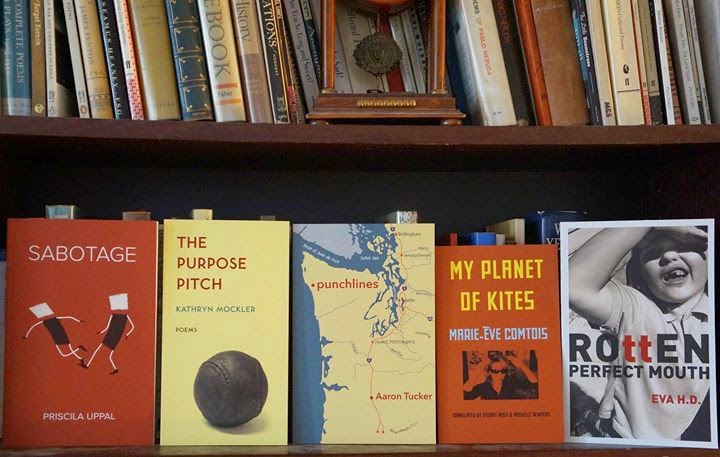
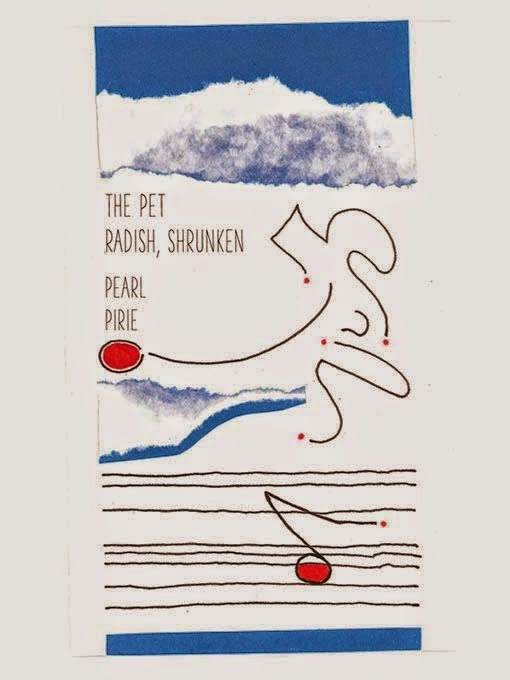


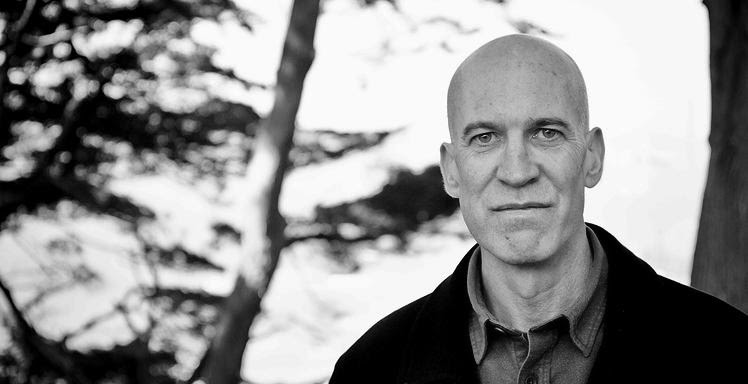





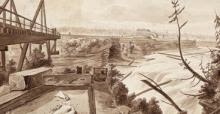
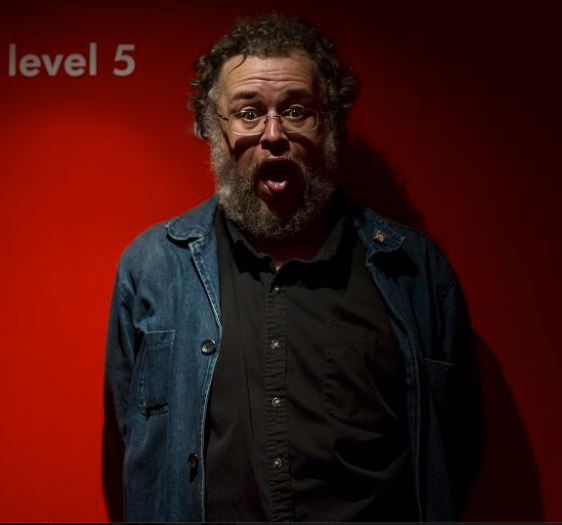
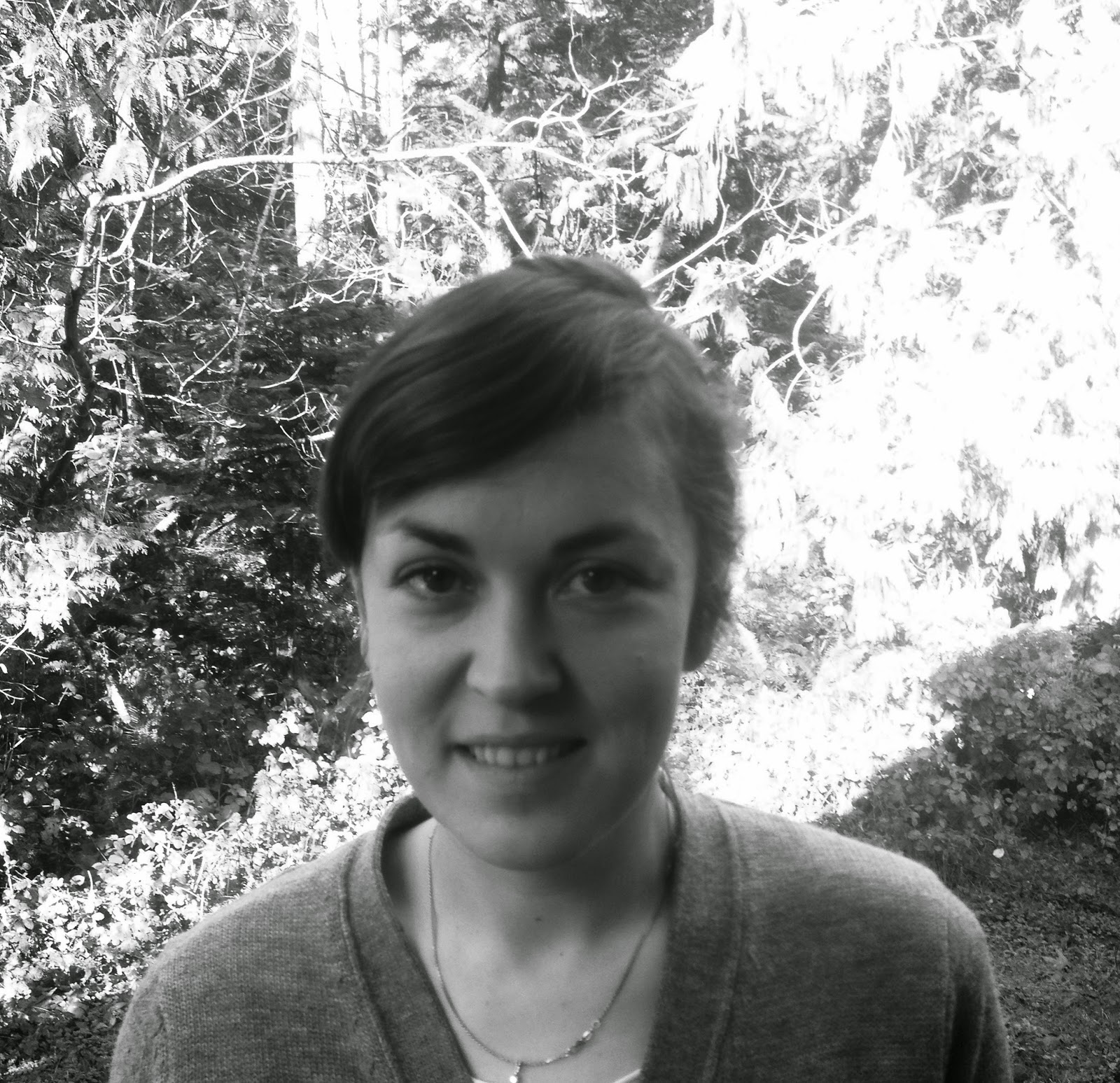.jpg)